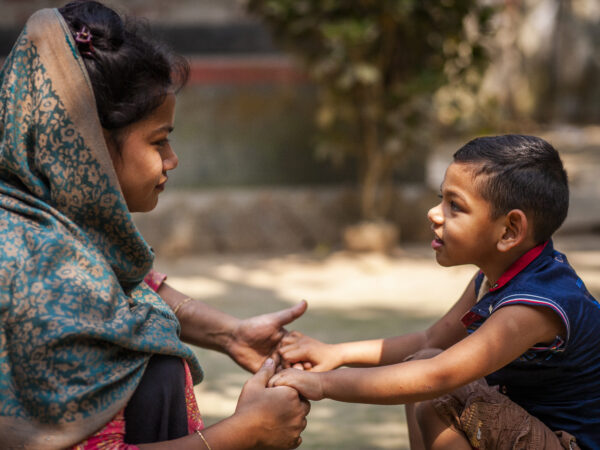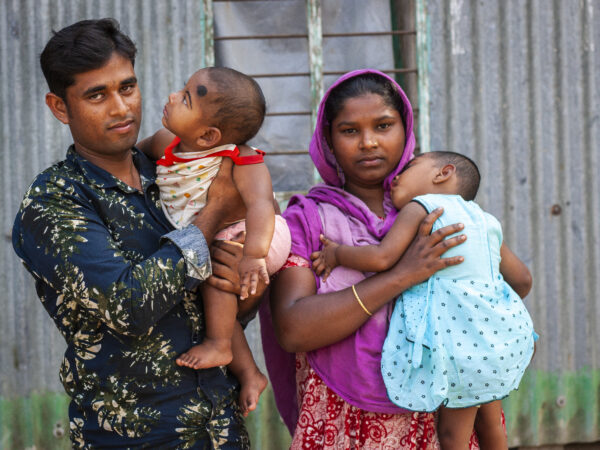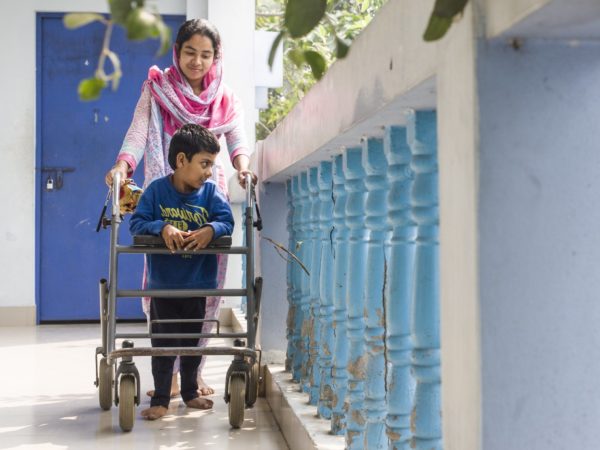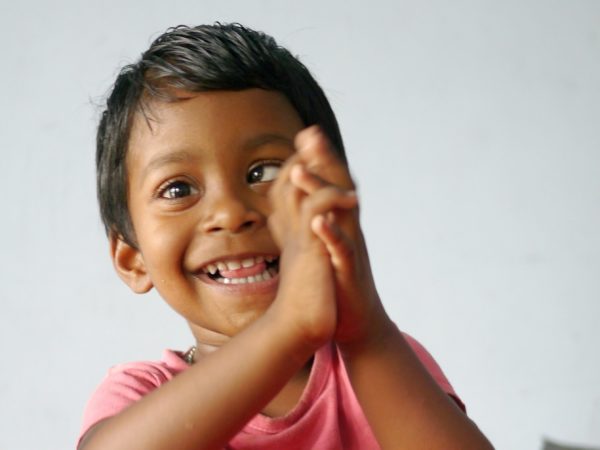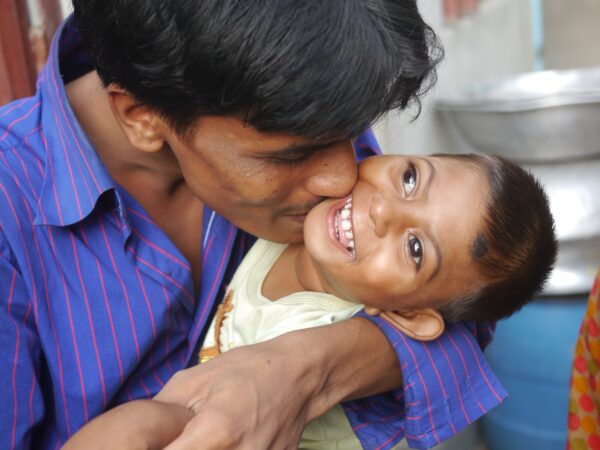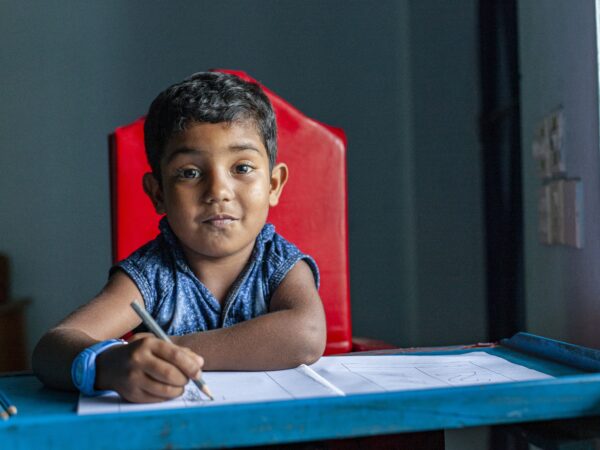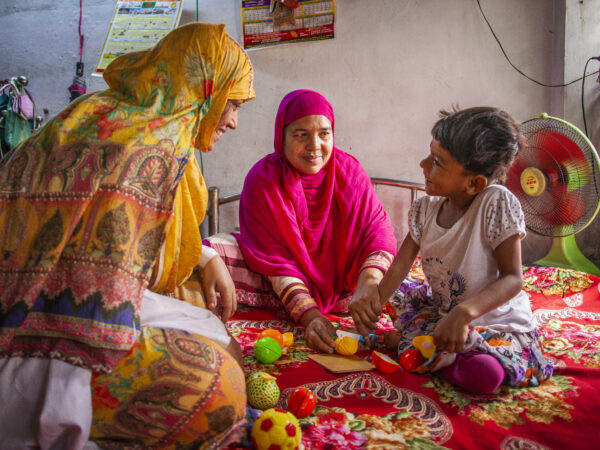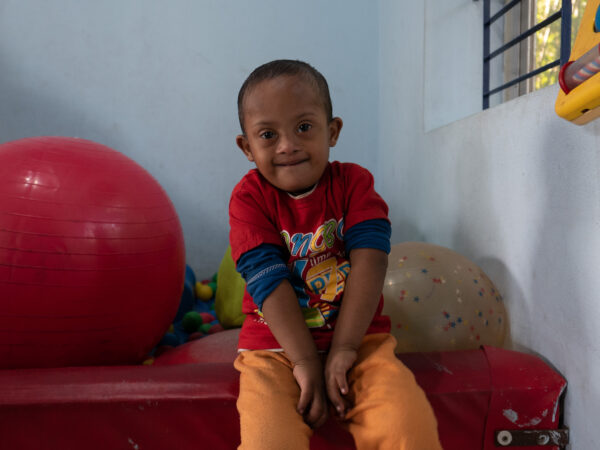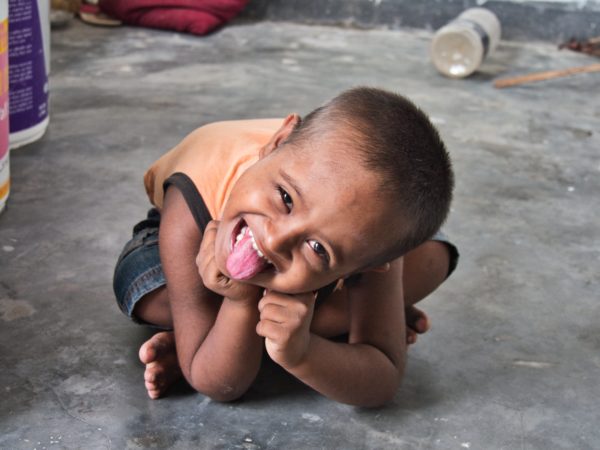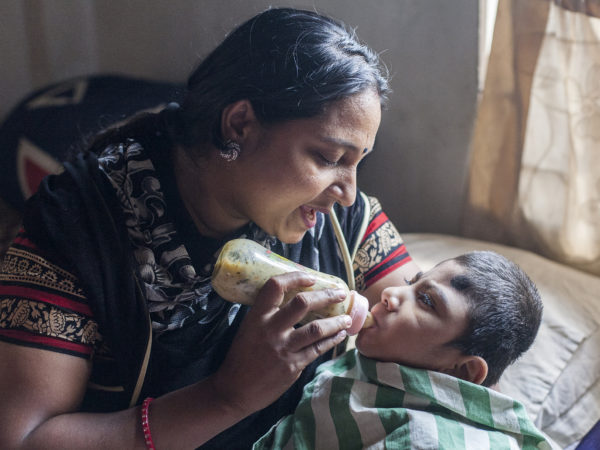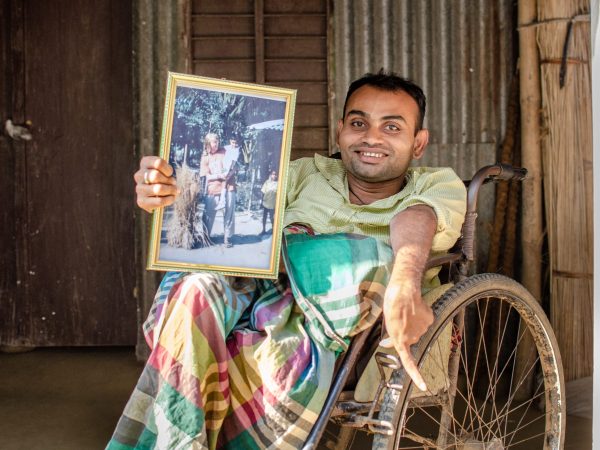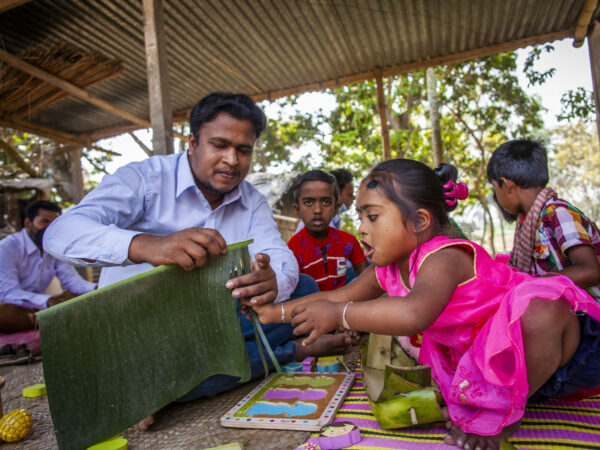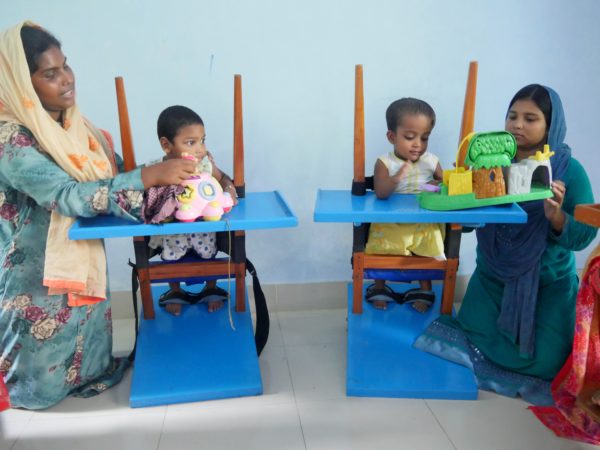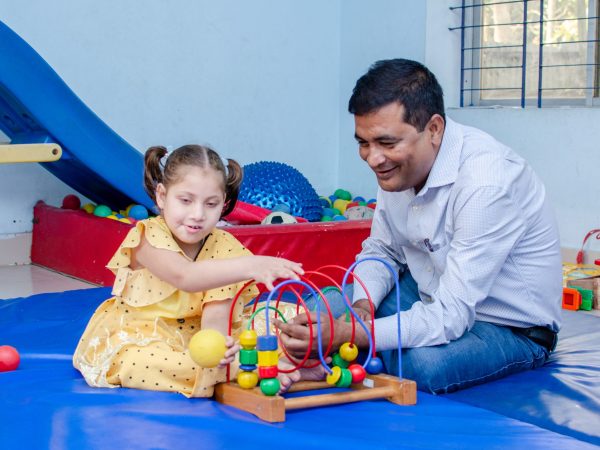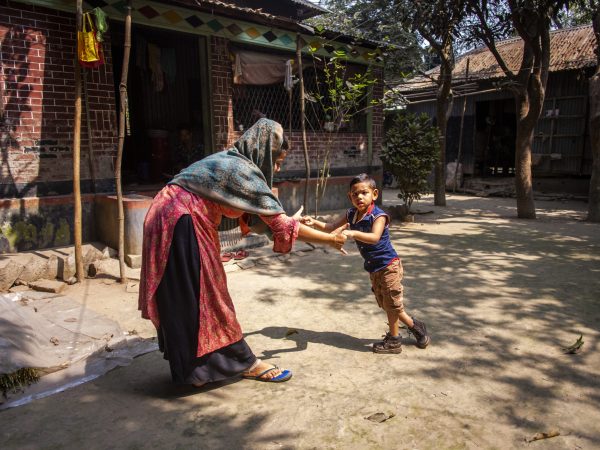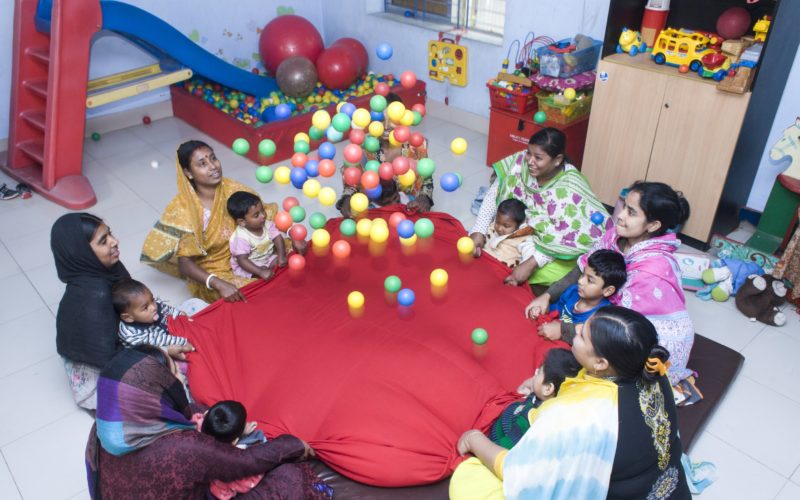Project Early intervention
Early intervention is intended for parents who suspect that their child aged 0 to 5 has developmental problems and for parents who feel that there is something wrong with their child, but do not know exactly what. The early intervention program has a regional function and works closely with local health centers.
For all children, the first years of life are an important time to lay the foundation for lifelong learning and participation in society. It is also an important period to prevent any developmental delays and a limiting condition.
Parents generally have limited knowledge of child development and disability. They often have unrealistic (low or high) expectations about changing a child’s condition and do not know how to support the child’s optimal development. An assessment is carried out by a physiotherapist and a special needs teacher.
An interactive program
Niketan offers parents in Bangladesh an interactive program of observation, treatment and day care, focusing on the unique abilities of the child and parents. The parents are part of the program and learn to stimulate the development of their child in a playful way. Niketan provides information, trains parents, teachers and care professionals, improves the quality of care and contributes using appropriate developmental methodologies.
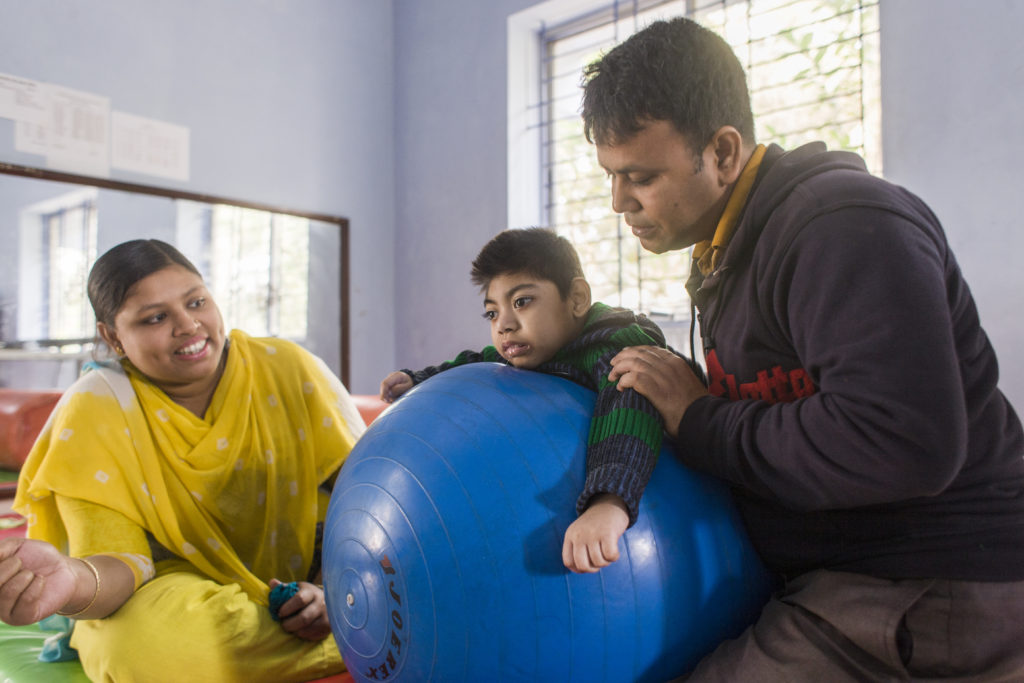
The children are encouraged to develop their skills within their possibilities by using the ‘small steps forward model’. This model offers supervisors insight into the development of the child and the small steps that have to be taken in order to master new skills.
The program provides a broad range of activities and provisions such as:
- Physical skills (reaching out, crawling, walking, drawing, building with blocks)
- Cognitive skills (thinking, learning, solving problems)
- Communication skills (talking, listening, asking)
- Self-help or adaptive skills (eating, dressing)
- Social-emotional skills (playing, interacting with others, negotiating)
- Sensory processing skills (handling textures, tastes, sounds, smells)
- Training programs for parents (Reaching the hard to Reach)
The program promotes understanding and awareness of disabilities in order to create a more inclusive environment for children and young people with disabilities.
Read the story of Tamim

